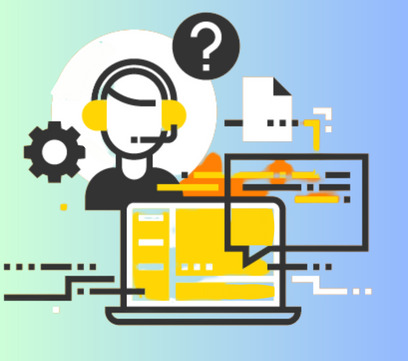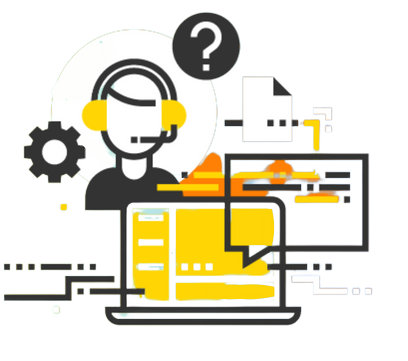The future of technical support is set to undergo significant changes. AI and chatbots, AR and VR, IoT, predictive analytics, self-service portals, and customer-centric support culture will all play a significant role in shaping the future of technical support.
As technology continues to evolve at a rapid pace, technical support has become an essential aspect of every business. Technical support helps customers solve problems with their products or services, and it is critical to customer satisfaction and retention. With advancements in technology, the future of technical support is set to undergo significant changes. In this article, we will explore the predictions and trends for the future of technical support.

Artificial Intelligence (AI) and Chatbots
AI and chatbots are transforming the way technical support is delivering. With AI and chatbots, customers can get instant responses to their queries and issues. Chatbots can integrate with messaging platforms and websites, allowing customers to interact with them 24/7. AI-powered chatbots can also help in diagnosing problems and resolving them, reducing the need for human intervention.
Augmented Reality (AR) and Virtual Reality (VR)
AR and VR revolutionize technical support by enabling technicians to diagnose and resolve issues remotely. AR and VR can use to create virtual environments where customers can interact with technical support agents and receive guidance on how to resolve their issues. This can reduce the need for on-site support and lead to faster issue resolution.
Internet of Things (IoT)
The Internet of Things (IoT) is a network of interconnected devices that communicate with each other. As the number of IoT devices continues to increase, technical support will need to evolve to accommodate them. Technical support agents will need to train in IoT technologies and protocols to provide support for IoT devices. IoT devices can also use to collect data on device usage, which can use to proactively identify and resolve issues.
Predictive Analytics
Predictive analytics can use to anticipate and prevent issues before they occur. By analyzing data on device usage, support tickets, and customer feedback, technical support teams can identify patterns and trends that indicate potential issues. Predictive analytics can also use to recommend solutions to customers based on their usage patterns.
Self-Service
Self-service has around for some time, but it is set to become even more prevalent in the future. Customers want to be able to solve their problems quickly and easily. Self-service options, such as knowledge bases and FAQs, can enable customers to find the information they need to solve their issues without contacting technical support.
Omni-Channel Support
Omni-channel support involves providing support through multiple channels like email, phone, chat, and social media. Customers want to be able to contact technical support through their preferred channels, and omnichannel support can enable this. Technical support teams must train to provide consistent and high-quality support across all channels.
Personalized Support
Personalized support involves tailoring support to individual customers’ needs and preferences. This can involve using data on customer usage patterns to provide targeted support or assigning dedicated support agents to high-value customers. Personalized support can improve customer satisfaction and retention.
Remote Work
The COVID-19 pandemic has accelerated the trend toward remote work, and this is set to continue in the future. Technical support teams must equip with the tools and technologies to provide support remotely. Remote work can also enable technical support teams to provide 24/7 support across multiple time zones.
Collaboration
Technical support teams will need to collaborate with other teams within the organization to provide effective support. Collaboration can involve sharing knowledge and resources, such as troubleshooting guides and best practices. Collaboration can also involve working with product development teams to identify and resolve issues.
Conclusion
The future of technical support is set to undergo significant changes. AI and chatbots, AR and VR, IoT, predictive analytics, self-service portals, and customer-centric support culture will all play a significant role in shaping the future of technical support. As customer expectations continue to evolve, technical support teams will need to adopt new technologies and processes to provide faster, more efficient, and more personalized support experiences. Technical support teams that embrace these changes and prioritize customer satisfaction will be well-position to succeed in the years to come.
BACK










